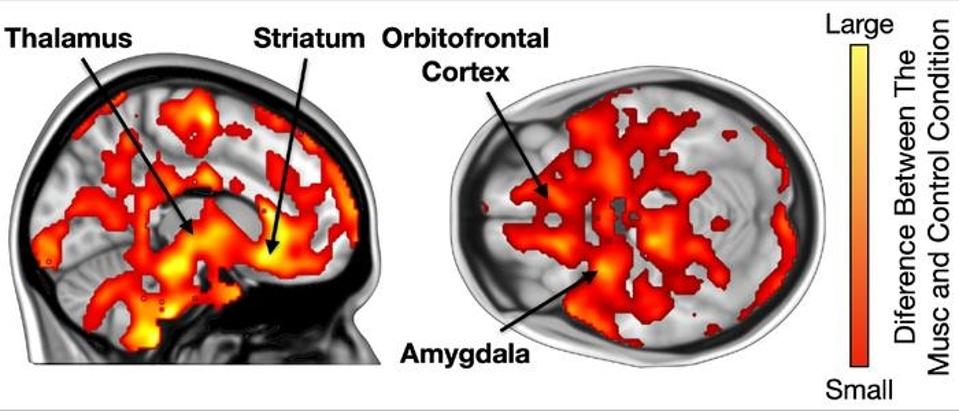In two separate studies, researchers learned more about the way that our brains respond to music. One study found that brain neurons synchronize with musical rhythms, while the other showed how favorite music triggers a chemical pleasure signal in the brain.
Favorite music triggers a pleasure response
In the first study, researchers in Finland studied what happens in the brain when people hear their favorite music. They asked fifteen volunteers to listen to their music of choice while they had their brain scanned with positron emission tomography (PET). WIth this method, the researchers could study how opioids were released in the brain in response to the music.
As the name suggests, the opioid signalling pathway in the brain is responsible for how opioids, like certain painkillers, act on the brain. Besides numbing pain, opioids are also mood-altering. It’s what makes opioid drugs so addictive, but opioids aren’t just found in drugs. They also naturally occur in the brain, and internal signals in the body can release opioids.
This is what seems to be happening when we listen to our favorite music, according to this new study. It could also partly be responsible for why we feel happy chills when music really moves us.
“These results show for the first time directly that listening to music activates the brain’s opioid system. The release of opioids explains why music can produce such strong feelings of pleasure, even though it is not a primary reward necessary for survival or reproduction, like food or sexual pleasure,” Vesa Putkinen, who carried out this study, told the University of Turku.
Because the opioid signalling pathway is also involved in pain relief, this could explain why some people have noticed that music also helps to reduce pain.
Brains match the rhythm of the music
In the second study, a different group of researchers combed through existing research papers about the neuroscience of music. They noticed that several of these older studies support the idea that the brain’s natural rhythm is closely linked to our experience of music.
Music has a rhythm, but our bodies also experience a natural rhythm of their own. Brainwaves, or neural oscillations, are regular patterns created by firing neurons or groups of neurons. Some researchers have suspected for a while that these rhythms can synchronize with the rhythm of music. In this new study, researchers collected some of that evidence to further support this idea.
“This theory suggests that music is powerful not just because we hear it, but because our brains and bodies become it,” study author Caroline Palmer told McGill University. “That has big implications for therapy, education and technology.”
Together, these two studies reveal that music affects our brains in a number of different ways. If listening to music has such an effect on the brain’s rhythm and reward systems, this could support the use of music therapy. For some conditions, such as Parkinson’s and Alzheimer’s, there already is a lot of evidence that music therapy works, but these new studies could help open the door to even more music therapy opportunities.

